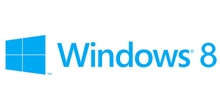What a Windows 8 U-turn will mean for the PC


It seems highly likely that Microsoft is planning a big Windows 8 U-turn, and that the release of Windows 8.1 — also known as Windows Blue — will allow users to bypass the much-hated Start Screen and also bring back the much-loved Start button.
While this is likely to please those who found these changes irritating and confusing, what could this mean for the wider PC industry?
Mea culpa, or the next step?
It's clear that Microsoft considered Windows 8 to be risky. Microsoft CEO Steve Ballmer characterized it as just that back in October 2010. This is clear evidence that Microsoft had doubts about how the operating system would be received by the PC driving masses. If Microsoft thought that Windows 8 could be risky, then it is likely that the company had a plan B.
Windows 8.1 could be that plan B.
But the question remains — how will Microsoft spin the U-turn? Will it be a mea culpa, or will the changes be branded as the next evolutionary step for the operating system?
The OEM response
Many PC OEMs are dissatisfied with what Microsoft has done with Windows 8 and the way the company has handled the negative response to the operating system. Privately, one OEM source told me that Microsoft is "destroying" the PC industry, while another claimed that Windows 8 has "handed over millions of customers to Apple."
Other OEMs are making their displeasure known publicly. Both Lenovo and Samsung have released Start button replacements for Windows 8.
As I've said many times already, the PC industry is suffering as consumers shift from spending their dollars on PC to spending their dollars on post-PC devices such as smartphones and tablets. Windows 8 has done little to boost sales, so OEMs will be pinning their hopes on the next big thing to come out of Redmond.
Where will this leave Windows 8 apps?
One of the primary reasons why Microsoft wanted to bypass the desktop and throw Windows 8 users into the confusing hell stew that is the Start Screen is to give apps a higher level of visibility.
But if Microsoft is planning to give users the ability to bypass the Start Screen, this is going to mean fewer eyeballs on apps. This could have a detrimental knock-on effect on app sales.
Will developers be interested in developing apps for Windows 8 if the focus of attention is shifted from the Start Screen to the desktop?
Issue of trust
There is a palpable lack of trust surrounding Windows 8. While some consumers have embraced the changes the operating system has brought with it, others remain wary. It's a similar situation to that which clouded Windows Vista.
Can Windows 8.1 regain the trust that Windows 8 has eroded away? If it can then it could give the PC industry a reprieve. If not, it will be another — possibly final — nail in the coffin of the PC.
Can Microsoft restore user trust in the Windows brand?